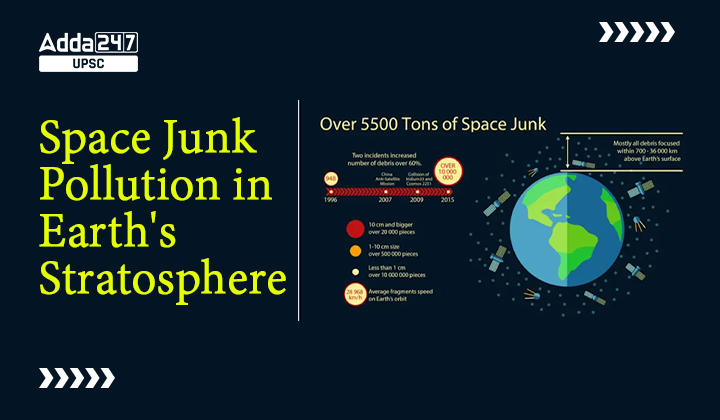Table of Contents
The Earth’s atmosphere is under siege from an unlikely source, as a recent NOAA study reveals that burnt-up rockets, satellites, and space debris are silently polluting the stratosphere. While the consequences of this pollution remain unknown, scientists are racing to comprehend the implications.
A Startling Discovery
- Scientists at the United States National Oceanic and Atmospheric Administration (NOAA) have delved into the stratosphere, a critical layer of our atmosphere.
- Their investigation uncovered an alarming presence of particles containing various metals originating from satellites and used rocket boosters vaporized upon re-entry.
Niobium and Hafnium
- Among the particles discovered, two particularly surprising elements emerged: niobium and hafnium. These rare elements are not naturally found in the stratosphere, posing a baffling mystery about their origin and presence, according to Daniel Murphy, the lead author of the study.
The Aerospace Industry Connection
- Niobium and hafnium are not naturally occurring free elements but are essential components in superalloys and semiconductors. They typically need to be refined from mineral ores.
- The presence of these elements, along with high concentrations of copper, lithium, and aluminum, all used in heat-resistant, high-performance alloys, pointed scientists to the aerospace industry as the likely source of this pollution.
Current Pollution Levels and Future Concerns
- According to the NOAA study, approximately 10% of stratospheric sulfuric acid particles currently contain traces of metals from rockets and satellites. However, this percentage is expected to surge to over 50% as space traffic continues to grow.
- Space agencies and private companies worldwide are intensifying their efforts to reduce space debris by burning it up in the atmosphere.
Potential Consequences and Urgent Research
- The pollution of the stratosphere with metal particles raises important questions about the potential consequences for the environment and human health.
- As these metals disperse and accumulate, they might have unforeseen impacts on climate, weather patterns, and even air quality. Researchers are now urgently focusing on unraveling these potential effects.
Mitigating the Threat
- Space agencies, including NASA, and private companies are working collaboratively to tackle the issue of space debris. Innovative solutions, such as designing satellites with shorter lifespans to ensure they naturally re-enter the Earth’s atmosphere sooner, are being explored.
- Additionally, the development of sustainable practices and regulations for space activities is vital to address the growing concern of space pollution.
Conclusion
- The NOAA’s groundbreaking study sheds light on a hitherto overlooked environmental challenge: space junk polluting Earth’s stratosphere. With rare elements like niobium and hafnium making an unexpected appearance, this issue raises significant questions about the long-term impact on our planet.
- As space exploration and satellite technology continue to advance, understanding and mitigating the consequences of space pollution will be paramount for the future of our atmosphere and the health of our planet.



 TSPSC Group 1 Question Paper 2024, Downl...
TSPSC Group 1 Question Paper 2024, Downl...
 TSPSC Group 1 Answer key 2024 Out, Downl...
TSPSC Group 1 Answer key 2024 Out, Downl...
 UPSC Prelims 2024 Question Paper, Downlo...
UPSC Prelims 2024 Question Paper, Downlo...




